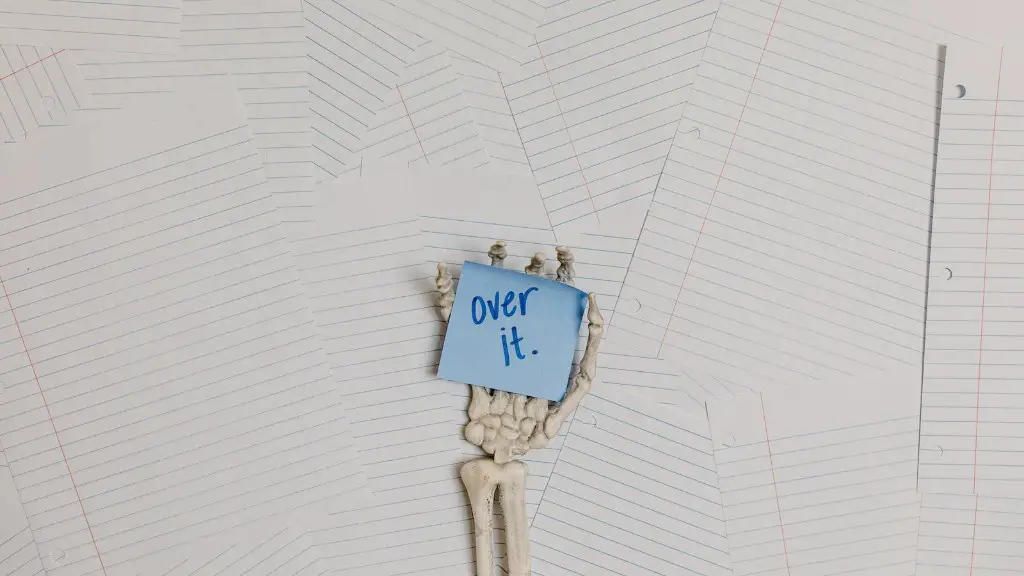Stress and anxiety are common psychological reactions to challenging life events. While stress and anxiety are normal reactions to difficult situations, they can also become debilitating when they become chronic. When someone is constantly stressed or anxious, they may start to experience physical symptoms, such as a lump in their throat. This is because chronic stress and anxiety can lead to muscle tension and other changes in the body that can cause physical discomfort. If you are experiencing a lump in your throat that is persistent or interfering with your daily life, it is important to talk to a doctor or mental health professional to rule out any underlying medical conditions and to develop a plan to manage your stress and anxiety.
There is no direct causal link between stress and anxiety and the development of a lump in the throat. However, it is possible that the two may lead to increased throat tension, which could then cause a sensation of a lump in the throat. Additionally, anxiety and stress can contribute to other conditions, such as GERD, which may also cause a feeling of a lump in the throat.
Can anxiety feel like something stuck in your throat?
If you’re experiencing a sensation of tightness in your throat or the feeling that something is stuck there, it’s likely due to stress or anxiety. This sensation, called globus sensation, is unrelated to eating. However, there may be an underlying cause. Problems that involve the esophagus often cause swallowing difficulties.
If you’re feeling a lump in your throat, it may be due to anxiety or stress. Try to relax and allow your body to return to a state of calmness. It may take up to 15 to 20 minutes for the feeling to subside.
Why do I feel a lump in my throat when stressed
The stress response can cause the body’s muscles to tighten, which can make swallowing difficult. The stress response can also increase sensory awareness, making us more aware of normal body sensations, such as those in the throat. If you are feeling stressed, it is important to find ways to relax and reduce your stress levels.
If you’re experiencing globus sensation, it can feel like there’s a lump in your throat. This sensation is caused by an increased tension of muscles or irritation in the throat. There are a number of things that can cause globus sensation, so it’s important to talk to your doctor if you’re experiencing this symptom.
How do I get rid of anxiety lumps in my throat?
There is no one-size-fits-all answer to how much water you should drink each day. However, drinking water can reduce the sensation of a lump in your throat. Drinking water can help to calm down your worries and also help to hydrate your body.
If you are experiencing globus sensation (the feeling of a lump in your throat) for more than a couple of weeks, you may be referred to an Otolaryngologist or ENT (ear, nose, and throat specialist). Globus can last for days, weeks, or even months, and can be recurrent. If your symptoms are severe or interfere with your quality of life, you may require treatment.
When should I worry about a lump in my throat?
If you have been feeling a lump in your throat that is persistent or occurs with other symptoms, it is a good idea to see your healthcare provider. Other symptoms that may warrant a visit to the doctor include unexplained weight loss, pain with swallowing, or difficulty swallowing. If you are experiencing any of these symptoms, please do not hesitate to seek medical attention.
Anxiety and GERD are the most common causes of globus pharyngeus. This can result in muscle spasms that trigger feelings of an object caught in the throat.
Does stress cause globus
There are a variety of psychological factors that can contribute to stress and trigger the globus sensation. Examples include anxiety, depression, and chronic stress. It is believed that these psychological factors can lead to changes in the autonomic nervous system, which can then contribute to the globus sensation.
If you have symptoms of a globus that last for more than a couple of weeks, you may be referred to an Otolaryngologist or ENT. These specialists can help to determine the cause of your symptoms and provide you with treatment options. In some cases, a globus can last for days, weeks, or even months. In some cases, the condition may be recurrent.
Can globus be psychological?
Globus may be a symptom of certain conditions. According to a 2017 article in the journal Frontline Gastroenterology, healthcare professionals once considered globus to be a mostly psychological condition. However, researchers now understand that it can be a symptom of both psychological and physical conditions.
Globus sensation is a feeling of a lump in the throat that is not associated with any physical obstruction. It is a common condition, affecting up to 1 in 10 people. While globus sensation is not dangerous, it can be very distressing and may lead to anxiety and avoidant behaviour. There is evidence to suggest that globus sensation is linked to psychological conditions such as stress, depression, and health anxiety. This is likely due to the fact that these conditions can lead to an increase in muscle tension in the throat, which can contribute to the feeling of a lump. If you are experiencing globus sensation, it is important to seek help from a medical professional to rule out any physical causes. If no physical cause is found, you may be referred to a mental health professional for further assessment and treatment.
What medication is used for globus
Globus is a condition characterized by the presence of a lump in the throat, which can cause difficulty swallowing. There is no specific cause of globus, but it is often associated with anxiety and stress.
Treatment for globus typically focuses on relieving symptoms and may involve the use of psychoeducation, anxiolytics or proton pump inhibitors. Psychoeducation can help patients understand globus and learn how to manage their anxiety. Anxiolytics can help to reduce anxiety and proton pump inhibitors can reduce the size of the lump in the throat.
The sensation of having a lump in one’s throat or of choking is a common symptom of anxiety. For some people, this sensation can be so severe that it causes further anxiety, creating a vicious cycle. If you experience this symptom, it is important to seek help from a mental health professional in order to learn how to manage your anxiety and break the cycle.
Can anxiety medication help with globus?
If you’re struggling with globus sensation, it may be worth talking to a doctor about the possibility of taking antidepressants. While more research is needed in this area, preliminary evidence suggests that amitriptyline may be effective in reducing the severity of globus sensation. If you’re considering this medication, be sure to have a discussion with your doctor to weigh the risks and benefits.
There are a few things you can do to help ease your symptoms:
-Drink more water, a minimum of 15 litres (3 pints) per day in addition to any tea/coffee/cola.
-Avoid drinking more than 4 cups of coffee/tea/cola per day.
-Stop any bad habits, such as shouting, raising your voice or throat clearing (swallow instead).
How do you know if globus sensation is serious
Cancer very rarely presents as globus pharyngeus,5 but it is important to ask about red flag symptoms such as persistent hoarseness, progressive dysphagia or dysphagia for solids, or pain on swallowing, haemoptysis, and weight loss. If any of these are present, cancer should be considered as a possible diagnosis.
If you have any of the above mentioned symptoms, you may be suffering from dysphagia. This is a condition where it is difficult to swallow. There are many possible causes for this condition, such as a problem with the muscles or nerves involved in swallowing, or a blockage in the throat. If you think you may have dysphagia, it is important to see a doctor so that the cause can be determined and treated appropriately.
Final Words
There is no one answer to this question as everyone experiences stress and anxiety differently. Some people may feel a lump in their throat when they are anxious, while others may not. It is possible that the feeling of a lump in your throat is caused by stress and anxiety, but it is also possible that it is caused by something else entirely. If you are concerned about the lump in your throat, you should see a doctor to get it checked out.
Yes, stress and anxiety can cause a lump in your throat. This is because when you are anxious or stressed, you tend to swallow more often, which can lead to a feeling of a lump in your throat.





